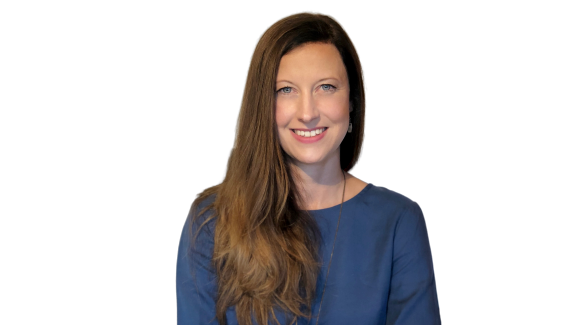Unsere vernetzte Welt verstehen

Der Schmerz geht, der Titel bleibt! Teil 2
Der nachfolgende Artikel ist die versprochene Fortsetzung des Artikels “Der Schmerz geht, der Titel bleibt! Promovieren in 6 Akten (und es ist noch nicht vorbei)“ von Januar 2016. Darin hatte Martina ihre zweijährigen Erfahrungen als Doktorandin geschildert. Doch die Forschungsreise des Verfassens ihrer kumulativen Doktorarbeit war damit noch lange nicht beendet. Man könnte im Gegenteil fast behaupten die Reise fing erst an. Nachfolgend schildert Martina, wie ihre Reise als HIIG-Doktorandin sich langsam dem Ende nähert.
Phase 7: Indulge in the loneliness and embrace the freedom
I rounded up the last piece on “Writing our PdD in 6 scenes“ with emphasizing the freedom of loneliness that the life of a PhD student brings along. Being able to embrace and accept the loneliness has contributed vitally to the enhancement of my paper-based dissertation. Once I had figured out what I wanted to write about, and accepted that I had to do it entirely by myself, I also got to enjoy this time by myself. I wrote, when the words wanted to flow, I thought, when the thoughts wanted to come, and I took the breaks, when I needed rest. That may sound pretty straight forward. However, this also meant to be able to say “no“ to social engagements — to friends, family, and events — without feeling too bad about it. It additionally implied living up to the schedule that worked best for myself and my brain — and that schedule does not always go in line with eight to five-working mentalities.
Phase 8: Work hard, work harder
In fact, once your PhD schedule has taken over, it becomes the dictator to your life. In other words, the times of living in a democratic world are over. The dissertation starts to dominate your every step, moment, and thought. You yourself become obedient to this dictatorship that tells you that all you need right now is a strict structure. Because only the structure is going to accommodate your writing and thought flows as well as the much needed breaks. Playtime slowly fades away. You might still do some workout, occasionally meet friends, or allow yourself a call once in a while. The truth is, however, that the time for your personal, social engagements slowly starts to fade away. The PhD-dictatorship takes over. Besides working increasingly longer hours during the week, you start to really look forward to those weekends that you can dedicate entirely to your dissertation.
Phase 9: Riding the waves of flow
Suddenly, it feels like surfing. Your life structure accommodates your research flows, the different research articles of your dissertation seem to make sense, and they all fit together. They build a logic storyline and, thus, nicely string together in your dissertation. In addition, the researchers in your field seem to have waited just for the papers you are about to send out to the leading journals of your field. A level of contentment fulfills you that you would not have expected one year from now. Put differently, you are positive that it is all going to work out nicely. Your papers will persuade the critical editors of the high level journals that you are going to send your work to, and your professors will finally agree with the outcomes of your doctoral thesis. It is all gonna be just fine.
Phase 10: Then you discover the book the “Hero`s journey“
But as you discover the book the “Hero`s journey„ a sudden realization hits you. The life of a PhD student does not just turn into happiness. Rather, the moment you assume that “you got it“ will be the turning point just like it is described in the Hero`s journey. The PhD dictatorship will not allow you to surf the wave of happiness for long. To the contrary, you will receive extensive love letters from the journal editors explaining why your papers have not been accepted for publication. They will explain that while your research question seemed interesting and relevant, your dataset was too small, your writing not good enough (by the way – did you know, there were editing services out there?), and you might additionally want to look at authors a, b, and c (Because really, it seems like you haven`t mentioned all relevant authors to your field, yet. — I mean, after two years of reading, how could you have read every relevant paper in your field…) If you are as lucky as I was, at least your supervising professors might still trust in your ability to write a good paper and finish your dissertation.
Phase 11: …and you start to call it names
That is what you do to finish your (paper-based) dissertation: You revise every single article (again), advance the data set, add the relevant literature, and work with an editor. Meanwhile, you still feel that the storyline of your entire thesis somehow makes sense. But this does not make you as happy as it has before because it does not imply that the overall thesis is finished yet. In fact, the hassle is only about to begin. By now, the dictatorship of the dissertation has really taken over you life. Saying “no“ to social engagements is no exception any more but the rule. Weekends are dedicated to working — what else. Your thoughts belong to the thesis. The sentence “I`ll think about that once I have handed in the dissertation“ becomes the standard (e.g., thinking about cleaning your apartment, going to the hairdresser, taking a holiday – “I’ll think about it when I am done…“). And you start to call it names … because it has taken over completely and made you a lonely PhD student with ugly hair, no friends, no life, and a dirty apartment. (Please don`t forget this is still a satiric reflection…)
Phase 12: Living in the bubble
Have you ever imagined yourself to live in a bubble, which consists of only air, you, and the topic of your dissertation? Probably not! That is how the finishing line feels like. You are inside your bubble, your brain turns numb to any other topic than your research topic, and the world has become a tiny place. Yet, this world is still ruled by the dictatorship of the dissertation with many (gradually less friendly) names and it really starts to stress you out. The certainty you once had that everything will turn out just fine in the end has faded and been replaced by many questions: Will this thesis be good enough? Just because the final conclusions seem logic and accessible to you, won`t they appear banal to your supervisors and professors?
In addition, every step on the finishing line seems to take a lifetime. Revising every single sentence, every headline, every reference over and over again just feels dumb. How is the world going to change from a perfect reference list? How are you ever going to be able to explain what you have been doing during these past months of your dissertation? How will anyone believe that you have worked on these few pages for three years? After all, what does it really matter, and will it ever end? It does not seem to. It is more like the work of Sisyphus: Every time you have rolled up the stone, e.g., finished the revising every sentences of your 200 page long dissertation, the reference list, the abstract, or the acknowledgements, you realize there is still more to do, e.g., getting the signatures of all co-authors, preparing your defense presentation, or getting in touch with a publisher (All of which is particularly important, if you want to hand in a paper-based dissertation).
So the life in the bubble goes — every morning and almost every other night, Sisyphus greets you in companionship with the PhD-dictator and they smile at you, and you smile back. At the end of day, you still trust that you will succeed. After all, a new thought has started to motivate you: Maybe Sisyphus actually was a happy man.
Dieser Beitrag spiegelt die Meinung der Autor*innen und weder notwendigerweise noch ausschließlich die Meinung des Institutes wider. Für mehr Informationen zu den Inhalten dieser Beiträge und den assoziierten Forschungsprojekten kontaktieren Sie bitte info@hiig.de

Jetzt anmelden und die neuesten Blogartikel einmal im Monat per Newsletter erhalten.
Forschungsthemen im Fokus
Der Human in the Loop bei der automatisierten Kreditvergabe – Menschliche Expertise für größere Fairness
Wie fair sind automatisierte Kreditentscheidungen? Wann ist menschliche Expertise unverzichtbar?
Gründen mit Wirkung: Für digitale Unternehmer*innen, die Gesellschaft positiv gestalten wollen
Impact Entrepreneurship braucht mehr als Technologie. Wie entwickeln wir digitale Lösungen mit Wirkung?
Bias erkennen, Verantwortung übernehmen: Kritische Perspektiven auf KI und Datenqualität in der Hochschulbildung
KI verändert Hochschule. Der Artikel erklärt, wie Bias entsteht und warum es eine kritische Haltung braucht.




